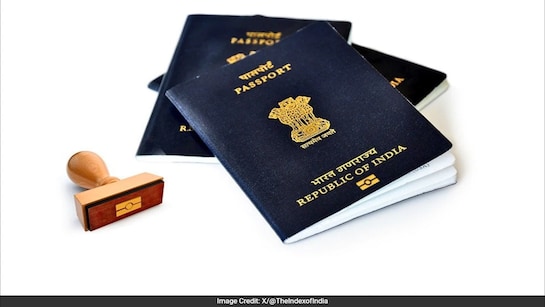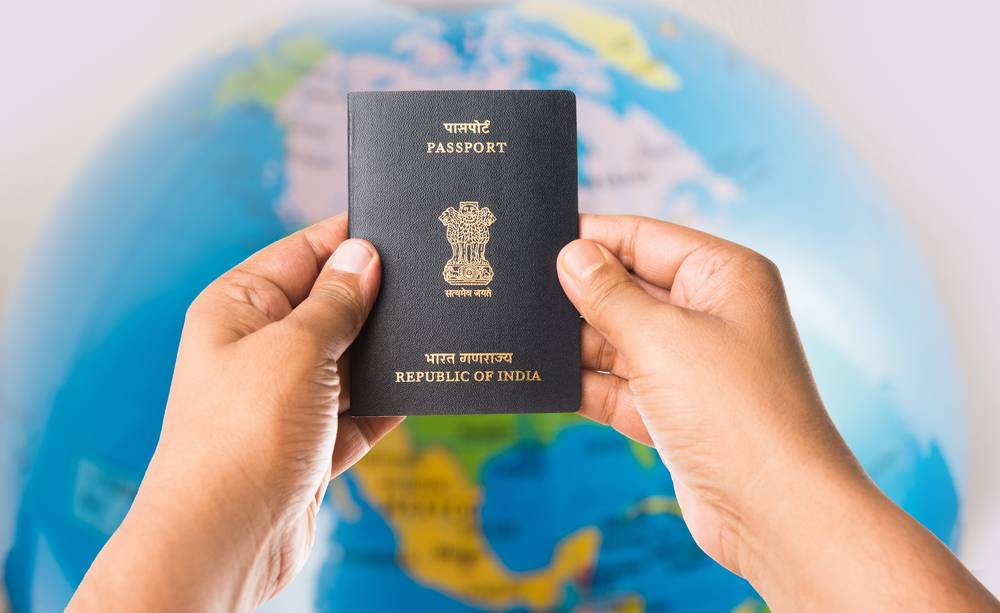India has launched e-passports in selected cities as part of its Passport Seva 2.0 programme. An e-passport is a modern passport with a small chip embedded in it. This chip stores the holder's personal and biometric details. It helps make international travel safer and faster. The e-passport also protects against fraud and tampering.
The e-passport was officially launched in 2025 by the Ministry of External Affairs. It follows global standards and aims to improve the travel experience for Indian citizens. With this new technology, immigration checks will be quicker and more secure.
In this article, we'll take a look at who can apply for an e-passport, the eligibility criteria, and how to apply. We'll also cover the benefits of having an e-passport and which cities are offering it right now. If you're planning to travel abroad, this article will help you understand everything about India's new e-passport.
What Is an E-Passport and How Does It Work?
An e-passport, or biometric passport, is a traditional travel document with an embedded electronic microchip. This chip securely stores the holder's personal data and biometric information, such as facial image and fingerprints, replicating the details printed in the booklet.
The passport uses Radio Frequency Identification (RFID) technology to wirelessly transmit encrypted data to a secure reader at immigration checkpoints. This allows for automated verification, comparing the live biometric scan of the traveller with the data stored on the chip.
This digital security measure, including a digital signature, makes the document highly resistant to forgery and identity theft, ensuring faster and more secure international border clearance.
Where Has the E-Passport Been Launched in India?

The e-Passport rollout in India began as a pilot project under the Passport Seva Programme (PSP) Version 2.0. Initially, it was launched and is being issued at the Regional Passport Offices (RPOs) located in the following cities:
- Nagpur (Maharashtra)
- Bhubaneswar (Odisha)
- Jammu (Jammu & Kashmir)
- Goa (Panaji)
- Shimla (Himachal Pradesh)
- Raipur (Chhattisgarh)
- Amritsar (Punjab)
- Jaipur (Rajasthan)
- Chennai (Tamil Nadu)
- Hyderabad (Telangana)
- Surat (Gujarat)
- Ranchi (Jharkhand)
- Delhi
The government is working on expanding the issuance to all Regional Passport Offices and Passport Seva Kendras across the country in a phased manner.
What are the Eligibility Requirements to Apply for the E-Passport?
The eligibility requirements for applying for an Indian e-passport are identical to those for a regular (traditional) passport. The e-passport is simply a technological upgrade (a chip-embedded version) that is gradually being issued to all eligible Indian citizens.
Key Eligibility Requirements
The primary criteria you must meet are the standard requirements for an Indian passport:
- Citizenship: You must be a Citizen of India.
- Application Type: You must be applying for a:
- Fresh Passport (never held one before).
- Re-issue of Passport (renewal of an expiring, expired, lost, damaged, or detail-changed passport).
- No Separate e-Passport Form: You do not apply for an "e-passport" specifically; you apply for a Fresh or Re-issue passport, and if your Passport Seva Kendra (PSK) is technically enabled, you will be issued the e-passport by default.
Required Documentation
While the eligibility is simple (Indian Citizen), the application relies on providing the mandatory supporting documents:
| Proof Category | Examples of Acceptable Documents (Carry Originals and Photocopies) |
| Proof of Address (PoA) | Aadhaar Card, Voter ID Card, Electricity Bill, Water Bill, Rent Agreement, Bank Passbook, etc. |
| Proof of Date of Birth (PoD) | Birth Certificate, Aadhaar Card, PAN Card, Driving Licence, or School Leaving Certificate/Matriculation Certificate. |
| Proof of Identity (PoI) | Aadhaar Card, PAN Card, Voter ID Card, etc. (usually fulfilled by PoA/PoD documents). |
| Old Passport | The original old passport (mandatory for reissue applications). |
| For Minors | Birth Certificate and parental passport copies/consent affidavits (Annexures C or D). |
Important Note: There is no special or increased fee for the e-passport; the fee structure for Normal and Tatkal applications remains the same as for the standard passport.
How Can You Apply for an E-Passport? Step-by-Step Guide

The application process for an Indian e-passport is the same as the process for a regular passport, as e-passports are now the standard issue at equipped Passport Seva Kendras (PSKs). Here is a step-by-step guide to applying:
Step 1: Register on the Passport Seva Portal
- Visit the official website: Go to the official Passport Seva Portal.
- Register: Click on the "New User Registration" link.
- Create an Account: Select your nearest Regional Passport Office (RPO) and fill in the required personal details to create your login ID and password.
Step 2: Fill and Submit the Application Form
- Log In: Log in to the Passport Seva Portal using your registered credentials.
- Select Service: Click on the link that says "Apply for Fresh Passport/Re-issue of Passport".
- Choose Application Type: Select the appropriate options (e.g., Fresh Passport or Re-issue, Normal or Tatkal).
- Fill Form: You can choose to:
- Fill the application form online and click "Submit". (This is the most common and recommended method.)
- Download the e-Form, fill it offline, generate the XML file, and then upload it.
- Submit: Once you have completed the form, apply online.
Step 3: Pay the Fee and Schedule an Appointment
- Pay: After submitting the form, click on the "Pay and Schedule Appointment" link. Online payment is mandatory for booking an appointment.
- Book Appointment: Select your nearest Passport Seva Kendra (PSK) or Post Office Passport Seva Kendra (POPSK). The system will display the available appointment slots.
- Confirm: Complete the payment and book your preferred date and time.
- Print Receipt: Print the Application Receipt, which contains the Application Reference Number (ARN) or Appointment Number. You will also receive an SMS confirmation.
Step 4: Visit the Passport Seva Kendra (PSK)
- Gather Documents: Collect all the necessary original documents (and a self-attested photocopy set) required for your specific category (Proof of Address, Proof of Date of Birth, Old Passport for re-issue, etc.).
- Visit PSK: Arrive at the chosen PSK/POPSK on your appointment date and time.
- Verification and Biometrics: At the PSK, the following will occur:
- Your original documents will be verified.
- Your photograph will be taken.
- Your biometric data (fingerprints) will be captured.
Step 5: Post-Submission and Delivery
- Police Verification: In most cases (especially for fresh passports), a police verification will be initiated after you visit the PSK.
- Tracking: You can track the status of your application online through the Passport Seva Portal using your ARN.
- Receive Passport: Once all verifications are complete and approved by the Passport Office, your e-passport will be printed and dispatched to your registered address via post.
Who Can Apply for an E-Passport?
The great news is that any Indian citizen who is eligible for a traditional passport can apply for an e-passport (chip-enabled passport). The e-passport is now being issued by default in Passport Seva Kendras that have been technically upgraded.This includes all categories of applicants:
- Adults (applying for a fresh passport or re-issue)
- Minors (under 18)
- Senior Citizens
There is no separate eligibility requirement for the e-passport itself; you just need to meet the standard criteria for getting an Indian passport. If you apply for a new passport or a reissue at an enabled Passport Seva Kendra (PSK), you will receive an e-passport.
Comments
All Comments (0)
Join the conversation